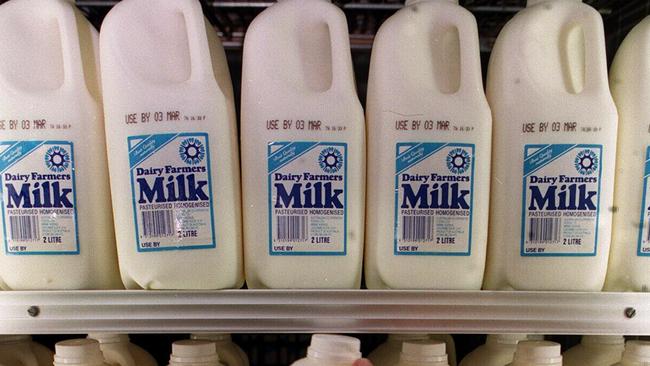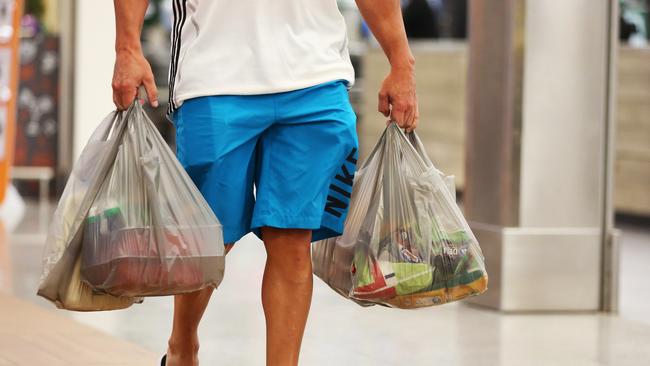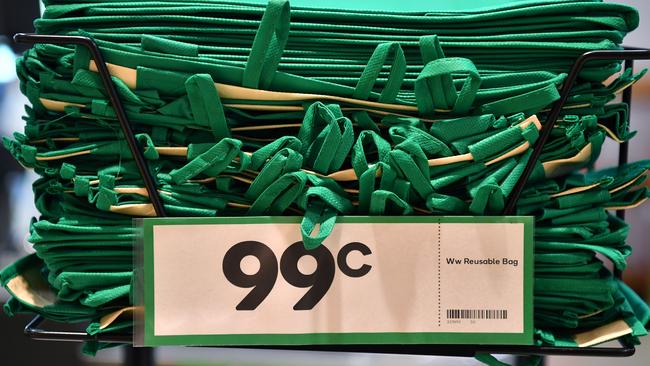Australia sets target to phase out throwaway plastic packaging by 2025
SINGLE-USE plastic packaging on food and groceries will be phased out in an ambitious plan to greatly reduce Australian waste by 2025 following a Chinese ban on processing recyclables.
News
Don't miss out on the headlines from News . Followed categories will be added to My News.
THROWAWAY plastic packaging on fresh food, groceries and other items will be gone within seven years as Australia attempts to deal with 1.3 million tonnes of waste a year it previously shipped to China.
An ambitious target that 100 per cent of local packaging be recyclable, compostable or reusable by 2025 or earlier to cut down on single-use plastic waste was agreed to by federal and state environment ministers on Friday.
More than 100 countries are affected by China’s new import restrictions that exclude 99 per cent of the recyclables that Australia used to send to China.
It accounts for 4 per cent of Australia’s recyclable waste, but 35 per cent of recyclable plastics and 30 per cent of recyclable paper and cardboard.
MATT JOHNSTON: VICTORIA CAN LEAD THE WAY ON RECYCLING
VICTORIAN WASTE BILLS SET TO RISE
RECYCLING PLANTS FIRE PRONE DUE TO OVERLOAD OF MATERIALS


The target will be overseen by the Australian Packaging Covenant Organisation, working with its 950 member companies.
More than 60 of the world’s biggest companies — including Nestle, Coca-Cola and Unilever — support the ban and have already put plans in place.
Governments will also move to increase the purchase of paper, road base and construction materials which use recyclable materials.
Federal Environment Minister Josh Frydenberg said solving for the 1.3 million tonnes of recyclable waste was an “urgent and important” issue which would require a co-ordinated approach from supply right through to demand.
“This is an important step forward, and will have a real, positive impact on our environment,” Mr Frydenberg said.
“It is also an opportunity for Australia to develop its capabilities and capacity in recycling through effective co-operation and collaboration among the three levels of government.”

APCO chief executive Brooke Donnelly said the China issue presented a significant opportunity for Australia to shift to the next level in packaging resource recovery, recycling and end use. “Today’s announcement is a monumental call to action and one of the most ambitious and decisive environmental targets to be supported in Australia,” he said.
“It’s essential that we take a consistent national approach. One that will promote domestic recycling and resource recovery to reduce the amount of waste going into landfill and deliver a smaller, cleaner waste stream in Australia.”
MICROBEAD POLLUTION RISK SCRUBBED OUT
Municipal Association of Victoria chief executive Rob Spence said new initiatives to increase consumer awareness were also welcome.
“In order to achieve the best environmental outcomes, the primary goal should be waste avoidance, followed by reuse and recycling,” Mr Spence said.


